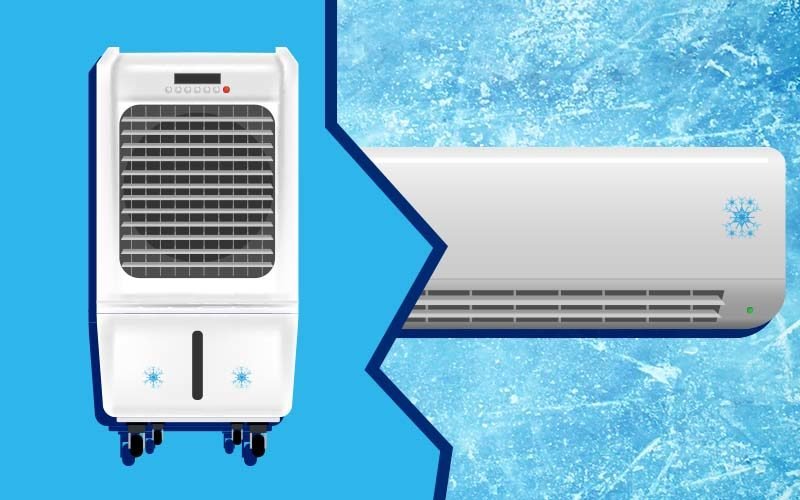Lucknow: With the scorching heat of summer approaching, the dilemma of choosing between an air conditioner (AC) and a cooler becomes increasingly relevant. Both devices aim to provide relief from the sweltering temperatures, but their impact on health differs. Let’s delve into the comparison to determine which option is better suited for maintaining your well-being during the hot months.
Understanding the Difference
1. Air Conditioner (AC)
Air conditioners operate by removing heat and moisture from the air, creating a comfortable indoor environment. They typically use refrigerants to cool the air and are common fixtures in homes, offices, and vehicles.
2. Cooler (Evaporative Cooler)
On the other hand, coolers, also known as evaporative coolers or swamp coolers, work by drawing warm air through water-saturated pads. As the air passes through the pads, it cools down through evaporation, and the cooled air is then circulated into the room.
Health Considerations
1. Air Quality

1.1 AC:
- AC units filter and circulate indoor air, removing pollutants, allergens, and contaminants. This helps improve indoor air quality, making it beneficial for individuals with respiratory issues.
- However, if not properly maintained, AC units can become breeding grounds for mold and bacteria, leading to respiratory problems and allergies.
1.2 Cooler:
- Coolers add moisture to the air, which can be beneficial in dry climates as it helps alleviate symptoms of dry skin and irritated respiratory passages.
- However, coolers do not filter air like AC units, which means they may circulate outdoor pollutants and allergens into the indoor environment.
2. Humidity Levels
2.1 AC:
- AC units tend to dehumidify the air as they cool it, which can be beneficial in humid climates by reducing discomfort and inhibiting mold growth.
- However, excessively low humidity levels from prolonged AC use can lead to dry skin, irritation of the eyes and respiratory tract, and increased susceptibility to respiratory infections.
2.2 Cooler:
- Coolers increase humidity levels in the air, which can provide relief from dryness and associated symptoms such as dry skin and throat irritation.
- However, in areas with high humidity, coolers may contribute to an uncomfortable indoor environment and promote mold and mildew growth if not properly maintained.
3. Energy Efficiency
3.1 AC:
- Modern AC units are designed to be energy-efficient, especially those with high Energy Star ratings. However, they still consume more electricity compared to coolers.
- The higher energy consumption of AC units can lead to increased utility bills, which may be a concern for some households.
3.2 Cooler:
- Coolers are generally more energy-efficient than AC units since they only require electricity to power the fan and pump water onto the cooling pads.
- This lower energy consumption results in reduced electricity costs, making coolers a more budget-friendly option for cooling large spaces.
When it comes to choosing between an AC and a cooler for health in summer, the decision depends on various factors such as climate, indoor air quality, and personal preferences. AC units excel in filtering and dehumidifying indoor air, making them suitable for individuals with allergies or respiratory conditions. On the other hand, coolers provide relief from dryness and can be more energy-efficient, but they may not offer the same level of air purification as AC units. Ultimately, it’s essential to weigh the pros and cons of each option and consider your specific needs and circumstances before making a decision that prioritizes both comfort and health during the hot summer months.









